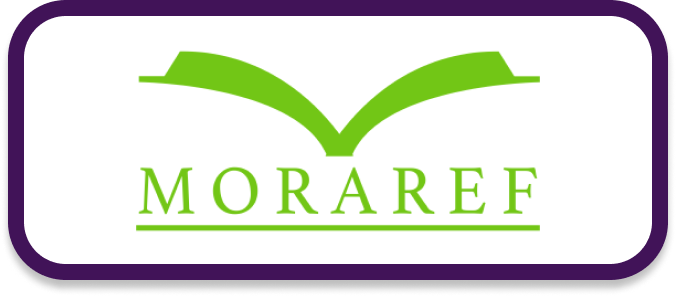- Focus and Scope
- Section Policies
- Peer Review Process
- Open Access Policy
- Archiving
- Article Processing Charge
- Publication Ethics Statement
- Plagiarism Check
- Content Licensing, Copyright and Permissions
Focus and Scope
GENDER EQUALITY: International Journal of Child and Gender Studies invites scholars, researchers, and students to contribute the result of their studies and researches in the areas related to gender, families, and children which covers textual and fieldwork investigation with various perspectives such as education, law, social, political, religion, culture, economics, psychology, science and technology.
Section Policies
Articles
Peer Review Process
Every manuscript submitted to GENDER EQUALITY: International Journal of Child and Gender Studies is independently reviewed by at least two reviewers in the form of "double-blind review". The decision for publication, amendment, or rejection is based on their recommendation. In certain cases, if necessary, the editor may submit an article for review to another, the third reviewer before making a decision.
Open Access Policy
This journal provides immediate open access to its content on the principle that making research freely available to the public supports a greater global exchange of knowledge.
Archiving
This journal utilizes the LOCKSS system to create a distributed archiving system among participating libraries and permits those libraries to create permanent archives of the journal for purposes of preservation and restoration. More...
Article Processing Charge
GENDER EQUALITY: International Journal of Child and Gender Studies does not charge authors and readers with any fee. All the processes of submission, publication, and maintenance of publications are free of charge.
Publication Ethics Statement
GENDER EQUALITY: International Journal of Child and Gender Studies accepts submission in the field of gender, families, and children which covers textual and fieldwork investigation with various perspectives such as education, law, social, political, religion, culture, economics, psychology, science, and technology.
GENDER EQUALITY 's Publication Ethics is an essential building block in the development of a coherent and respected network of knowledge. GENDER EQUALITY 's Journal follows clear ethical standards for publication to ensure high-quality scientific work and to enhance public trust in their findings. Thus, GENDER EQUALITY journal applies this policy to all its owned journals in adherence to the Best Practice Guidelines outlined in the COPE Core Practices. This policy should be read with our guidelines for authors and reviewers. It is a direct reflection of the quality of the work of the authors and the institutions that support them. Peer-reviewed articles support and embody the scientific method. It is therefore important to agree upon standards of expected ethical behavior for all parties involved in the act of publishing: the author, the journal editor, the peer reviewer, the publisher, and the society.
(Refer to COPE)
Publisher Responsibility:
- GENDER EQUALITY: International Journal of Child and Gender Studies is a scientific journal publisher is responsible for publishing article after the process of editing, peer review and layouts in accordance to the rules of scientific journal publishing.
- GENDER EQUALITY: International Journal of Child and Gender Studies is responsible for guaranteeing academic freedom of editor and reviewer in running their job.
- GENDER EQUALITY: International Journal of Child and Gender Studies is responsible for keeping privacy and protects intellectual property and copyright as well as editorial freedom.
The Editor Responsibility:
- The editor of GENDER EQUALITY: International Journal of Child and Gender Studies is responsible for deciding articles to be published through an editorial council meeting. The editor is guided by policy council and journal editorial restricted by valid law concerning defamation, copyright violation, and plagiarism.
- In the process of article acceptance, the editor team works based on the principle of justice.
- In the process of journal review and the decision of publication (articles), the editorial team does not discriminate against any races, sexes, religions ethnic, citizenship, or ideology of the political writers.
- The editor and editorial team will not open any information about manuscript or article except there are permits from the author.
- a manuscript (articles) that are not published after being proposed would not be used as research by an editor and will be returned directly to the author.
- Editors should not allow any conflicts of interest between staff, authors, reviewers, and board members.
Responsibility of the author:
- The author should present an article or research results clearly, honestly, and no plagiarism, and manipulation of data.
- The author is responsible for confirming articles that have been proposed and written.
- The author must obey requirements of publication in the form of original paper, no plagiarism, and the manuscript has never been published in a journal or other publication.
- The author must show reference of opinion and other literature being quoted.
- The author must write a manuscript or article by carrying ethic, honest and responsible as a valid scientific authorial regulation.
- The author is prohibited to send similar articles to more than one journal or publication.
- The author has no objection if the article is corrected without changing the basic idea or the substance of article.
- Authors must notify the Editors of any conflicts of interest.
Reviewer by Partnership:
Reviewer helps the editor in making decisions on the received article.
- Reviewer is responsible for giving a recommendation on the reviewed article.
- Review of a script is done objectively and supported by a clear argument.
- Reviewer maintains the secrecy of information for personal gain.
- Reviewers should not review manuscripts in which they have conflicts of interest resulting from competitive, collaborative, or other relationships or connections with any of the authors, companies, or institutions connected to the papers.
Plagiarism Check
Papers submitted to Gender Equality will be screened for plagiarism using Turnitin plagiarism detection tools. Gender Equality will immediately reject articles leading to plagiarism or self-plagiarism.
Before submitting articles to reviewers, those are first checked for similarity/plagiarism tool, by a member of the editorial team. The papers submitted to Gender Equality must have a similarity level of less than 20%.
Content Licensing, Copyright and Permissions
GENDER EQUALITY: International Journal of Child and Gender Studies uses licence CC-BY-SA or an equivalent license as the optimal license for the publication, distribution, use, and reuse of scholarly work.
This license permits anyone to compose, repair, and make derivative creation even for commercial purposes, as long as they include the creation of credit and license derivative under similar conditions.
In the development process GENDER EQUALITY: International Journal of Child and Gender Studies recognizes that free access is better than paid access. therefore this journal provides open access to all the parties to broaden and deepen knowledge adequately through existing articles in this journal.

GENDER EQUALITY: International Journal of Child and Gender Studies is licensed under a Creative Commons Attribution-ShareAlike 4.0 International License.




























